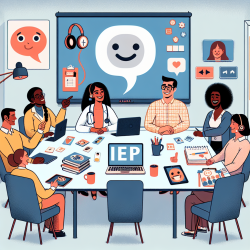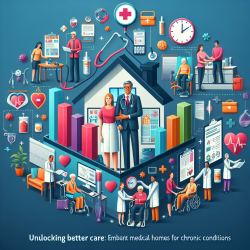Introduction
The study titled Evaluating Explicit and Implicit Stigma of Mental Illness in Mental Health Professionals and Medical Students sheds light on a crucial issue that affects both practitioners and patients: stigma. This research, conducted in Poland, highlights the ambivalent attitudes towards mental illness among both professionals and non-professionals. As a practitioner, understanding and addressing these biases is vital to providing effective care and improving outcomes for individuals with mental illness.
Understanding the Research
The study compared explicit and implicit attitudes towards mental illness among two groups: medical students with no prior contact with mentally ill patients and mental health professionals with at least two years of experience. Explicit attitudes were assessed through self-reports, while implicit attitudes were measured using the Go/No-Go Association Task (GNAT), a method that does not require a comparison category.
Results showed that while mental health professionals reported more positive explicit attitudes compared to non-professionals, both groups exhibited negative implicit attitudes. This suggests that professional contact with mentally ill patients does not necessarily modify negative implicit biases.
Key Findings and Implications
- Both professionals and non-professionals displayed ambivalent attitudes, with more positive explicit but negative implicit attitudes towards mental illness.
- Professional contact alone may not be sufficient to change implicit biases, which can affect clinical decision-making and patient care.
- Implicit biases can lead to prejudiced behaviors, which might not be captured through self-reported measures.
These findings underscore the need for mental health professionals to be aware of their implicit biases and seek continuous education and training to address these attitudes. Incorporating implicit bias training into professional development can help practitioners become more effective in their roles and improve patient outcomes.
Actionable Steps for Practitioners
To mitigate the impact of implicit biases, practitioners can:
- Engage in regular training sessions focused on implicit bias and stigma reduction.
- Participate in workshops and seminars that promote empathy and understanding of mental illness.
- Incorporate self-reflection practices to become more aware of personal biases and their impact on patient care.
- Advocate for and participate in research that explores methods to reduce implicit biases in mental health care.
Conclusion
Understanding and addressing implicit biases is crucial for mental health professionals. By actively engaging in bias-reduction strategies, practitioners can improve their interactions with patients and contribute to a more inclusive and supportive healthcare environment.
To read the original research paper, please follow this link: Evaluating Explicit and Implicit Stigma of Mental Illness in Mental Health Professionals and Medical Students.










